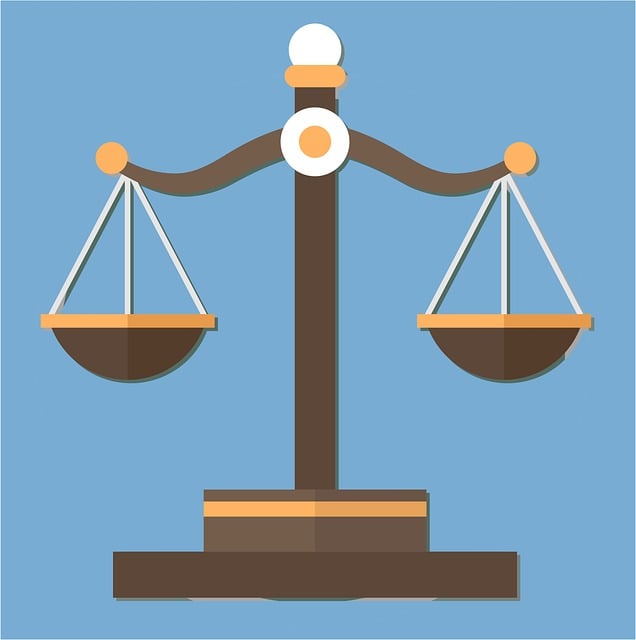RF Regulatory Agencies enforce RF laws, investigating spectrum use and device safety. They must balance their powers with the Right to a Fair Trial guaranteed by the Constitution, ensuring due process for suspects during complex inquiries that impact consumer protection and market competition. Early legal representation is crucial to protect individual liberties in these investigations.
RF Regulatory Agency investigations play a crucial role in ensuring compliance with wireless communication standards. This article delves into the authorities and powers of these agencies, balancing constitutional rights, particularly the Right to a Fair Trial, with effective regulatory practices. We explore how fair trial guidelines are implemented during investigations, while examining the delicate equilibrium between robust regulation and individual liberty. Understanding these dynamics is vital for stakeholders navigating RF regulatory landscapes.
- Understanding RF Regulatory Agency Authorities
- Investigatory Powers and Constitutional Rights
- Ensuring Fair Trial Practices During Investigations
- The Balance Between Regulation and Individual Liberty
Understanding RF Regulatory Agency Authorities

RF Regulatory Agencies play a pivotal role in ensuring that wireless communication technologies and devices operate within designated legal boundaries. These agencies possess the authority to investigate potential violations of radio frequency (RF) regulations, which cover a wide array of issues from spectrum utilization to device safety. Understanding their powers is crucial for individuals and entities operating in this domain. The right to a fair trial, as guaranteed by the Constitution, also comes into play during these investigations, ensuring that suspects are treated fairly and have legal protections throughout all stages of the investigative and enforcement process.
For his clients facing such inquiries, whether involving white-collar or economic crimes, navigating the complex landscape of RF Regulatory Agency investigations requires strategic expertise. The agencies’ mandate extends to upholding ethical standards in the use of RF spectrum, protecting consumers from unsafe devices, and ensuring competitive markets. Therefore, a thorough grasp of these authorities is essential for businesses and professionals alike to avoid legal pitfalls and maintain compliance with relevant laws and regulations.
Investigatory Powers and Constitutional Rights

When it comes to RF Regulatory Agency Investigations, understanding investigatory powers and their interplay with constitutional rights is paramount. These agencies possess significant authority to probe into various aspects of electronic communications and related technologies. However, this power must be balanced against individual liberties, particularly the Right to a Fair Trial guaranteed by the Constitution. The general criminal defense strategy often revolves around protecting these rights during investigations.
The scope of RF Regulatory Agency inquiries should respect the respective business interests of individuals and entities under scrutiny. For his clients, having legal representation early in the process is crucial to ensure that constitutional protections are upheld. This includes safeguarding against unreasonable searches and seizures, as well as ensuring that any evidence collected adheres to due process guidelines, thereby protecting a client’s rights throughout the entire investigation.
Ensuring Fair Trial Practices During Investigations

During RF Regulatory Agency investigations, upholding the Right to a Fair Trial is paramount. This principle, enshrined in the Constitution, ensures that individuals and businesses face proceedings with impartiality and due process. Agencies must carefully balance their investigative powers with the rights of those under scrutiny, particularly when dealing with complex cases involving white-collar and economic crimes. A fair trial practice involves transparent procedures, providing sufficient evidence to suspects, and ensuring they have adequate legal representation.
Respecting this right is crucial not just for maintaining public trust but also for the integrity of the respective business environment. When clients face investigations, their ability to defend themselves should not be compromised. Regulatory agencies should strive to conduct thorough inquiries while adhering to fair trial standards, fostering a sense of justice and fairness in their approach to investigations.
The Balance Between Regulation and Individual Liberty

In any democratic society, the balance between robust regulation and individual liberty is a delicate one. RF Regulatory Agency Investigations are no exception to this principle. While these investigations are crucial for ensuring compliance with laws designed to protect consumers, promote fair competition, and safeguard national security, they must be conducted within the confines of due process and respect for civil liberties. The Right to a Fair Trial, enshrined in the Constitution, is a cornerstone of our justice system and should guide every step of regulatory inquiry.
Every individual, even those engaged in respective business activities, has a fundamental right to be treated fairly under the law. This includes the right to be informed about allegations, to confront accusers, and to have their case decided by an impartial jury. In the context of RF Regulatory Agency Investigations, it’s essential that agencies uphold these principles, ensuring that any restrictions on individual liberty are justified and proportionate to the regulatory goal in question. A general criminal defense strategy, therefore, must consider both the need for regulation and the protection of personal freedoms as guaranteed by our legal framework.
RF Regulatory Agency investigations must strike a delicate balance between ensuring compliance with RF regulations and upholding individual constitutional rights, particularly the right to a fair trial. By understanding the investigative powers of these agencies, recognizing potential violations of constitutional rights, and adhering to best practices for fair trial practices, we can maintain a robust regulatory framework that respects both public safety and personal liberty.






